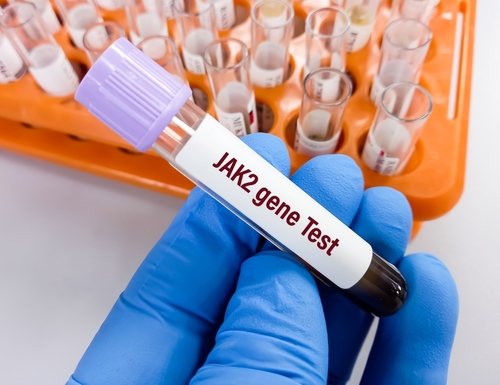
A study found that JAK2 V617F mutations were associated with improved overall survival (OS) and progression-free survival (PFS) after allogeneic hematopoietic cell transplantation (HCT) in patients with myelofibrosis (MF) after the approval of ruxolitinib in 2011. The findings were presented at the 65th ASH Annual Meeting & Exposition, which is taking place December 9-12 in San Diego, California.
Mahasweta Gooptu, MD, and colleagues analyzed 166 patients with MF who underwent HCT from 2000 to 2020. They assessed outcomes for the whole group and also conducted subgroup analyses in patients from the pre-2011 (n=39) and post-2011 (n=127) eras.
The analysis showed that OS for the whole cohort was 58%, and PFS was 55%. Four-year OS was significantly better in the post-2011 era compared with pre-2011 (69% vs 26%; P<.0001), as was PFS, largely due to lower relapse rates in the post-2011 era (15% vs 41%; P<.0001). Nonrelapse mortality was also better (20% vs 33%; P=.17) post-2011.
Overall, combining clinical and molecular features post-2011, the study showed that JAK2-positive mutation was significantly associated with better OS and PFS (hazard ratio, 0.32; 95% CI 0.14-0.75; P=.009).
The researchers concluded that “the presence of a JAK2 V617F mutation was associated with better OS and PFS following HCT in MF in the post-2011 era. Survival outcomes are significantly better in the post-2011 era compared [with] pre-2011 in our cohort.”
Reference
Gooptu M, Kim H, Chen K, et al. Impact of clinical and genetic factors on myelofibrosis outcomes after allogeneic transplantation. Abstract #4978. Presented at the 65th ASH Annual Meeting & Exposition; December 9-12, 2023; San Diego, California.







 © 2025 Mashup Media, LLC, a Formedics Property. All Rights Reserved.
© 2025 Mashup Media, LLC, a Formedics Property. All Rights Reserved.